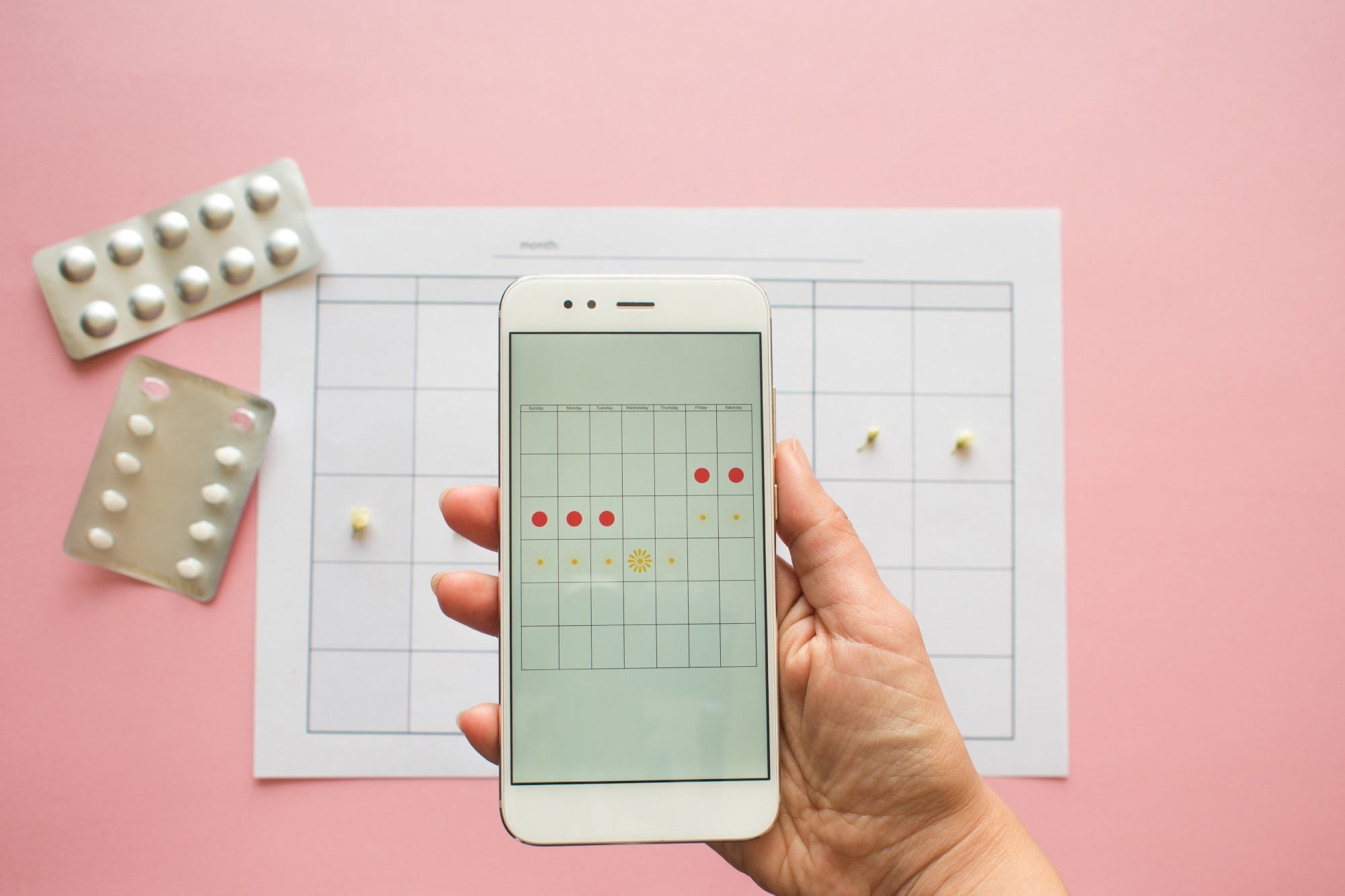A recent study posted on the preprint server Research Square* under review for publication in a Nature Portfolio journal reports that coronavirus disease 2019 (COVID-19) vaccines administered during the first follicular phase of the menstrual cycle can temporarily increase the duration of the menstrual cycle.
 Study: Timing of COVID19 vaccination drives menstrual cycle changes. Image Credit: Trismegist san / Shutterstock.com
Study: Timing of COVID19 vaccination drives menstrual cycle changes. Image Credit: Trismegist san / Shutterstock.com

 *Important notice: Research Square publishes preliminary scientific reports that are not peer-reviewed and, therefore, should not be regarded as conclusive, guide clinical practice/health-related behavior, or treated as established information.
*Important notice: Research Square publishes preliminary scientific reports that are not peer-reviewed and, therefore, should not be regarded as conclusive, guide clinical practice/health-related behavior, or treated as established information.
Background
Menstrual health, including menstrual cycle and menses duration, regularity, and volume, is a crucial indicator of general health and fertility in women. Nearly half of the female population, which accounts for approximately 26% of the global population, are of reproductive age. On average, a woman menstruates for a duration of seven years of her life.
Despite the significant association with overall quality of life and fertility, menstrual health outcomes are not routinely investigated in clinical trials. In fact, only a small number of studies conducted during the COVID-19 pandemic have reported temporary menstrual disturbances following COVID-19 vaccination. This might be due to the effects of vaccine-related immune responses on the hypothalamic-pituitary-ovarian (HPO) axis, which regulates menstrual cycle timing.
The menstrual cycle comprises the follicular and luteal phases. During the follicular phase, which is the first part of the menstrual cycle, the ovary prepares for and executes ovulation. The follicular phase primarily determines the menstrual cycle length, whereas the luteal phase starts after ovulation, during which the uterus prepares for a possible pregnancy.
In the current study, scientists investigate the association between COVID-19 vaccination timing and its role in affecting the duration of the menstrual cycle.
About the study
The current study analyzed menstrual cycle tracking data collected from 19,497 reproductive-aged women who used a digital fertility-awareness application called “Natural Cycles.” The data was used as a proxy to determine the timing of the follicular and luteal phases.
The duration of the menstrual cycle was compared between 9,279 and 5,532 women who were vaccinated either during either the follicular or luteal phases, respectively. A total of 4,686 unvaccinated women were also included in the study as controls.
COVID-19 vaccination during follicular phase extends menstrual cycle duration
A total of 19,497 participants from the United States, Canada, continental Europe, and the United Kingdom were included in the study. About 80% of the study cohort were under the age of 35 years, with about 64% having received a messenger ribonucleic acid (mRNA)-based COVID-19 vaccine.
As compared to vaccinated study participants, unvaccinated women were more likely to be under the age of 25 years, have a low educational background, and be residents of the United States or Canada.
As compared to pre-vaccination menstrual cycle duration, the post-vaccination cycle length increased by one day in women who received the first vaccine dose during the follicular phase. Comparatively, the cycle duration remained unchanged in those vaccinated during the luteal phase and unvaccinated individuals. Similar findings were observed for participants who received the second vaccine dose.
For both the first and second vaccine doses, the proportion of participants experiencing a clinically significant increase in the duration of their menstrual cycle, which is reflected by a menstrual cycle duration exceeding eight days, was significantly higher in those vaccinated during the follicular phase as compared to those vaccinated during the luteal phase and unvaccinated controls.
Study significance
The impact of COVID-19 vaccination on menstrual cycle duration primarily depends on the timing of vaccination. The current study reports that women vaccinated during the follicular phase may experience an increase in the duration of their menstrual cycle. However, vaccination performed during the luteal phase was not found to impact menstrual cycle duration.
The HPO axis regulates the recruitment of the dominant follicle during the follicular phase. Vaccine-induced immune responses can modulate the activity of the HPO axis, thereby leading to disruption of the timing of the luteinizing hormone surge and subsequent alteration in the timing of ovulation.
Thus, changes in the interaction between the immune and reproductive systems during the follicular phase due to vaccine-induced immune response might be responsible for the temporary alteration in menstrual cycle duration. Since the luteal phase length does not depend on the HPO axis, vaccination performed during this phase has no effect on cycle duration.

 *Important notice: Research Square publishes preliminary scientific reports that are not peer-reviewed and, therefore, should not be regarded as conclusive, guide clinical practice/health-related behavior, or treated as established information.
*Important notice: Research Square publishes preliminary scientific reports that are not peer-reviewed and, therefore, should not be regarded as conclusive, guide clinical practice/health-related behavior, or treated as established information.